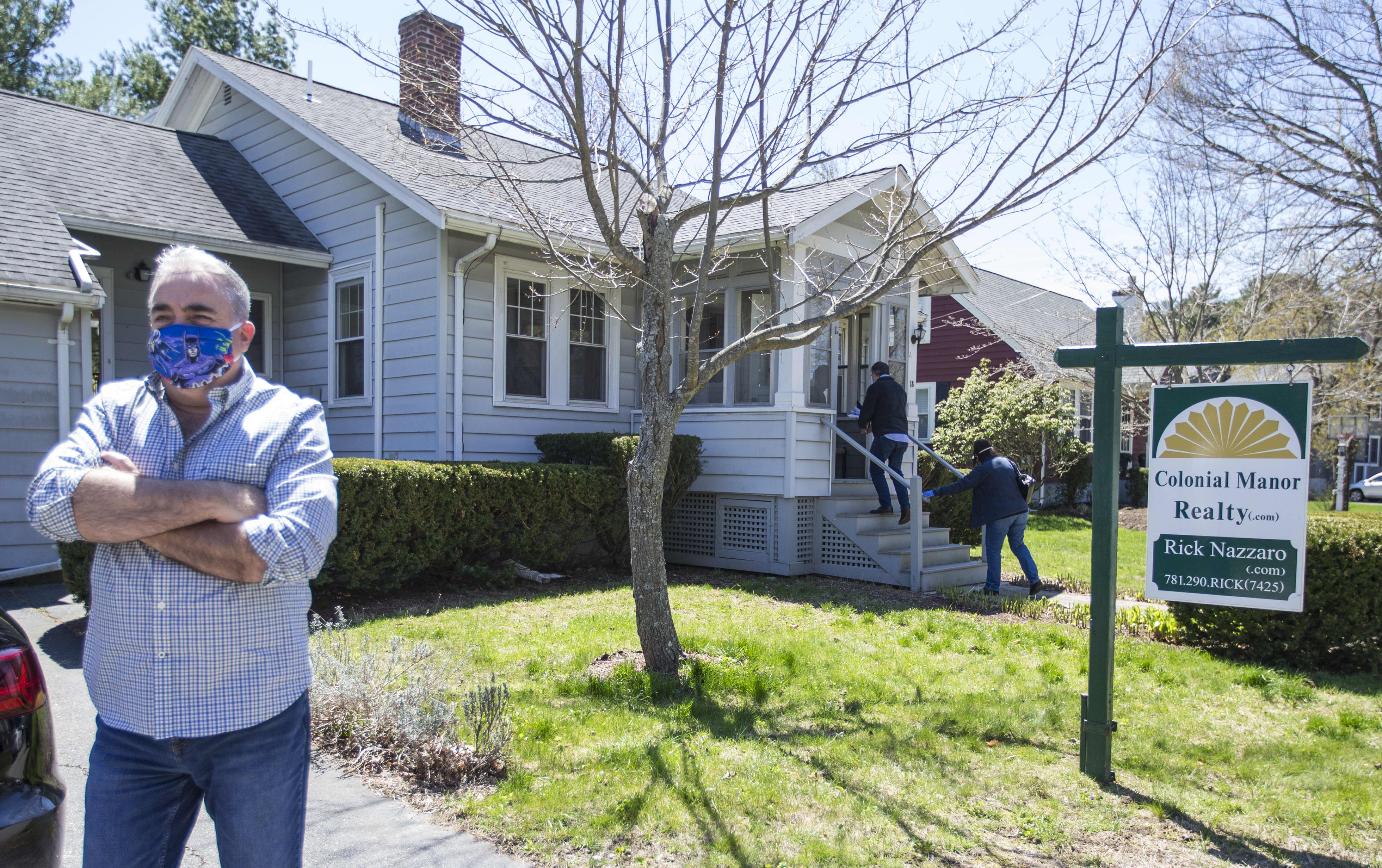Blake Nissen | The Boston Globe via Getty Images
If there is an upside to all the pandemic-induced uncertainty in the economy, it’s the rock-bottom mortgage rate bonus for homeowners and homebuyers.
The average rate on the popular 30-year fixed just fell to another record low — 2.87%, according to Mortgage News Daily.
That is about a full percentage point lower than a year ago. And that’s just the average. Some borrowers are getting even lower rates.
“There are pools of loans being sold right now with average rates of 2.625%, meaning some people are getting rates at 2.375-2.5%,” said Matthew Graham, chief operating officer at Mortgage News Daily. “While those likely involve some closing costs, that’s still nuts.”
Mortgage rates loosely follow the yield on the 10-year U.S. Treasury, which on Thursday fell to the lowest level since March. It is not an exact marriage, however, as the two have diverged recently given all the strange market conditions brought on by the coronavirus: The Federal Reserve began buying more mortgage-backed bonds to keep the market afloat and at the same time instituted a mortgage bailout for borrowers hit financially by the crisis.
All the uncertainty makes lenders and investors in mortgages nervous. They worry that people will lose their jobs and not make their monthly payments, or that the economy will go on lockdown again, hurting the housing market in general.
Mortgage rates are really based on what investors will pay for mortgage-backed bonds. Investors need some kind of yield, or they won’t buy those bonds. That is why rates can only go so low. It’s a question of whether the bonds even exist and what the demand would be for those incredibly low-rate bonds.
“For a variety of reasons, it doesn’t make any sense for the mortgage market to begin to rely on a new, lower-rate mortgage bond unless it’s sure that bond will remain relevant,” said Graham. “We only recently saw the introduction of an all-new mortgage bond coupon in April. It technically allows for rates to go down to 2.25% on the 30-year fixed. That’s as low as rates could go without a serious double-dip recession to drive a second wave of gains in the bond market — totally possible, but not yet a guarantee.”
Investors also want to be able to get the yield on the bonds they buy for a long while in order to make their investment worth it, so they don’t want people to refinance too quickly. Refinance volume has been incredibly strong this year, with applications last week up 122% annually, according to the Mortgage Bankers Association.
So yes, mortgage rates are at a record low and could move even lower, especially if the U.S. economy shuts down again, unemployment rises and investors rush even further into the bond market. Could that 2.25% limit be tested? Absolutely, but the detrimental economic conditions needed for that would likely push any potential buyers away from such a huge investment as a house. For current homeowners looking to refinance, it might be time to start shopping rates yet again.
